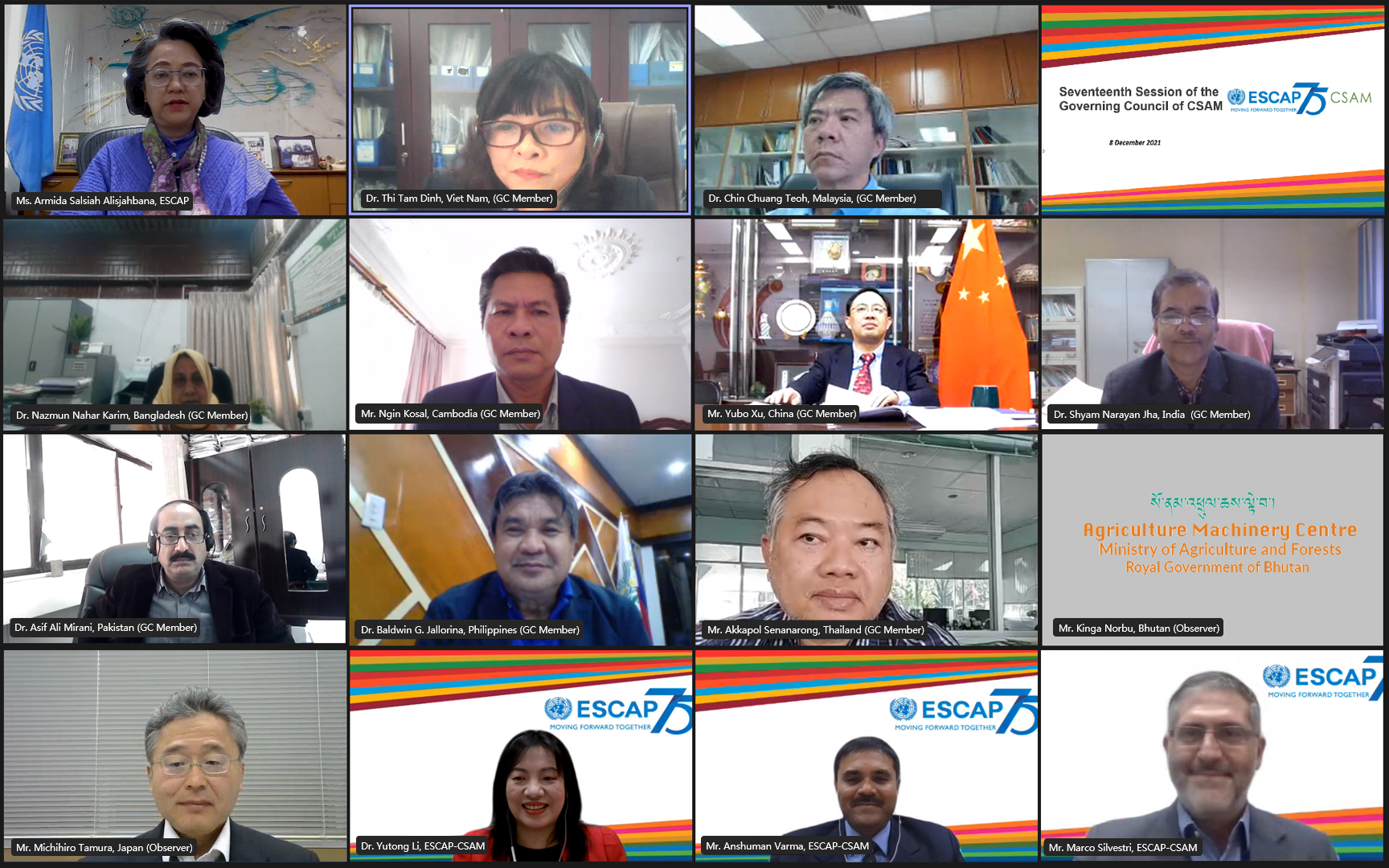Governing Council Commends CSAM’s Work Programme Achievements

The Governing Council of the Centre for Sustainable Agricultural Mechanization (CSAM) commended the Centre on the achievements in implementing its work programme and the recognition received for its projects during the seventeenth session of the Council held online on 8 December 2021.
As a regional institution of the United Nations Economic and Social Commission for Asia and the Pacific (ESCAP), CSAM is mandated to work with ESCAP members and associate members and other relevant stakeholders to promote sustainable agricultural mechanization for food security, improved rural livelihoods and sustainable development of agriculture across the region, thereby contributing to the attainment of the Sustainable Development Goals. The current members of the Governing Council for the period 2018 to 2022 are Bangladesh, Cambodia, China, India, Malaysia, Pakistan, the Philippines, Thailand and Viet Nam.
The seventeenth session of the Council was attended by all nine members as well as two observers, namely Bhutan’s Agriculture Machinery Centre and Japan’s Institute of Agricultural Machinery. Dr. Thi Tam Dinh, Vice Director General, Vietnam Institute of Agricultural Engineering and Post-Harvest Technology, Ministry of Agriculture and Rural Development of Viet Nam, and Dr. Chin Chuang Teoh, Deputy Director, Engineering Research Centre, Malaysian Agricultural Research and Development Institute (as the representative of Malaysia) were re-elected as the Chair and Vice Chair of the Council respectively.
During the session, the Council noted the importance of reducing post-harvest loss and waste in order to transform food systems and contribute to attainment of the related Sustainable Development Goals in the Asia-Pacific region. It also underscored the important role of sustainable agricultural mechanization in this regard. Moreover, the Council endorsed the CSAM work report for 2021 and the work plan for 2022 while providing further guidance for the Centre’s programme of work to better align it with the needs of ESCAP member States, especially the vulnerable segments of the farming community in the region.
